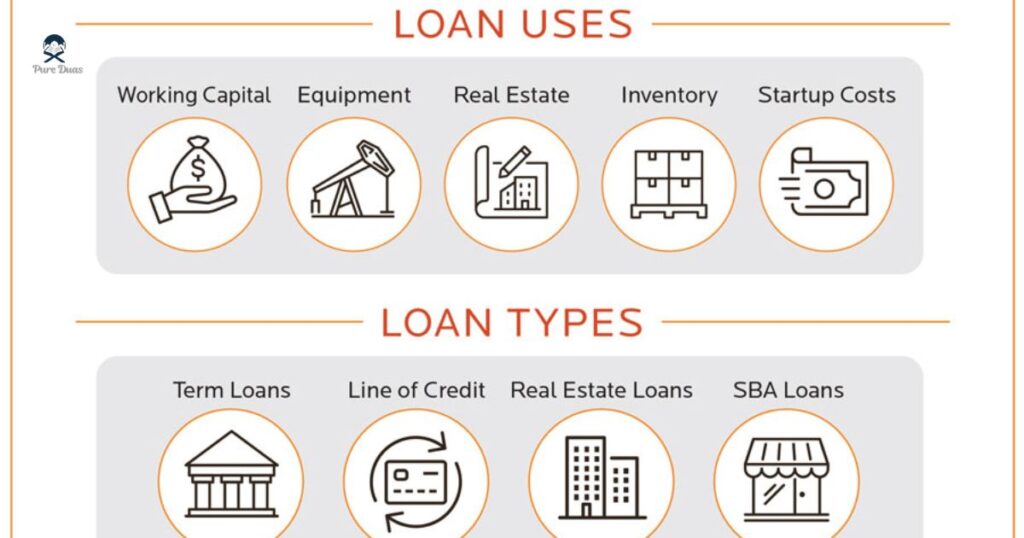Regarding the saying, “I’m neither a lender nor a borrower,” some people insist that it is sage advice, but more often than not, these people are misinformed about fiscal responsibility. Lending and borrowing, when done wisely, is not evil. As followers, we have a mission to live generously, carefully and with love, and we are to do this in every detail as we walk in God and Jesus.
To understand Christian financial principles means knowing when to offer assistance to someone and managing resources wisely. By still embracing the myth of borrowing and lending, we can adopt sensible and practical principles that safeguard our finances, while still enabling us to help others, provide, and fulfill the teachings of God in our everyday lives.
To say “I’m neither a lender nor a borrower” is not found in Scripture.
“I’m neither a lender nor a borrower”
It is a quote that can be traced back to Shakespeare’s works, and can be found in the bible. “I’m neither a lender nor a borrower” can be found in the play “Hamlet” (Act 1 Scene 3) said by Polonius, the father of Ophelia and Laertes. In this case, Polonius uses the quote to provide advice to his son Laertes, whom he believes, to be lending money, borrowing money is something that he ought to avoid.
But isn’t this really more wise than it is divine? While Shakespeare writes of some form of caution, he really is not cautioning the reader Biblically, for the Scriptures do speak of lending, assisting the needy, and practicing generosity, of which believers are to do all under the direction of God, the Lord.
The Lending Myth Explained.
Many people do regard the phrase “I’m neither a lender nor a borrower” as financial advice that is safe and sound, which is a primary misconception. Lending and borrowing are concepts that, with the proper disposition and attitudinal framework, can be deployed as acts of nobility and goodwill motivated by divine guidance.
The Scriptures are clear that assisting the needy and destitute is a worthy endeavor, but we are also to be financially prudent as well. Adopting the concepts of biblically based finances and practicing good stewardship equips us to lend in a manner that is beneficial to the other party but is not to the detriment of the lender.
Guidance from the Lord in our decisions enables us to shatter the myth and adopt a more balanced perspective toward lending and borrowing.
Why That Saying Isn’t True
You can’t simply say “I’m neither a lender nor a borrower.” That is an incorrect assessment of the teachings of generosity and compassion that God and the Lord advocate for. The Bible instructs its followers to lend carefully and to help those in true need with love. The Bible wants people to lend money.
Avoiding lending money is one important practice of Christian advice that helps in money lending stewardship. Neither lending nor borrowing money is a sin. The practice of lending and borrowing money is only a sin when it is done irresponsibly and foolishly.
The Lord is a master when it comes to guiding people on the wise principles of money. There are various approaches one can use to assist others in money, all of which can be bound back to the Lord. That simply proves the point that this is a common saying and belief, and not a rule to live by.
Thinking Differently About Money
A lot of people can talk about money, but they limit themselves when they say, “I’m neither a lender nor a borrower.” Wise money management means understanding the positive outcomes of lending and borrowing. It means being able to serve people. Christian finance says to look at the person asking for help, devise a plan, and execute it.
Changing this mindset allows people to incorporate decision making. Giving and receiving loans turns into a means to help others with Godly principles. Trusting God with finances becomes a way of life.
Lending and Borrowing Realities

Lending and borrowing, in and of themselves, are a part of almost everyone’s life. Borrowing and lending are a part of everyday life and how people manage finances therefore, “I am neither a lender nor a borrower ” is a phrase or a dedicated loan statement that strips people of their practical needs. Responsible lending means defining the loan and praying for wisdom to set terms that fits the borrower’s needs.
Christian financial wisdom indicates such opportunities can be created that do not lend the creator to high risk financial exposure. These practices enhance financial stewardship. But generosity, compassion and trust don’t operate in a vacuum. It is embracing and implementing such practices that dispels the myth of straying from the Lord with their finances.
The Truth About Debt
A lot of people seem to think that borrowing money is not an option that should ever be considered, but the reality is that debt for God and the Lord can be handled judiciously. While the saying goes, ‘neither a lender nor a borrower’ has its merits, avoiding all forms of lending and borrowing can deny us the opportunity to help people and follow the principles of Christian finance.
Stewardship is about knowing when it is obligatory to go into debt and the repayment terms, and lending that will not be harmful. In using the phrase ‘borrowing from the Lord’ and ‘lending to the Lord’ they can become instruments for blessing people who need help, and with God’s love and kindness, He would like us to display the same in our daily life.
Misunderstanding Financial Counsel
“I am neither the one who lends nor the one who borrows” is a popular saying which is often thought of as sage guidance. This type of guidance would stifle one’s ability to act as per the dictates of God and the Lord. Counsel within Christianity, with and in the context of finances, is geared towards serving others, managing economic resources with proper stewardship, and exercising sound judgment.
In the first place, the act of lending and borrowing is and would be of no value by itself, and in any real, practical scenario, would be of absolutely no value and worth. This type of scenario, with the context of lending and borrowing, pulls and hinders the members of the faith community to practice and provide a generous spirit.
Understanding the value of lending and borrowing will enable a person to structure their behavior in accordance with the Lord’s principles of blessing others while exercising wisdom with one’s resources. Financial advice, that is People end up fearing financial advice they have received from others.
To avoid this, people are encouraged to take a stand, draw emotionally, and stand firm without wavering in their faith in God, who will ensure that all decisions are prudent, empathetic, and above all, spiritual.
Debunking the Money Myth
Sometimes the saying “I’m neither a lender nor a borrower” can be quite popular but also quite misleading. As the saying goes, “to lend and to borrow is a sin” does not hold water at all if explained through the prism of Christianity. As per the biblical principles of finance, we are allowed to lend a helping hand if we are able to accomplish financial hygiene.
This myth becomes true if it can be explained as respectful, thoughtful and considerate financial stewardship. Basing it obviously into scripture, we are free to lend or borrow, provided that the intention is to help or provide a person or a community with the services that reflect the attributes of God.
Loans Aren’t Taboo.

Many believers think borrowing is wrong or something to be ashamed about. Under the guidance of God and the Lord, loans and borrowing are fine as long as they are taken care of. Considering the words “I’m neither a lender, nor a borrower” set boundaries that do not need to be put in place, especially when it comes to helping other people or managing money.
According to the philosophy of Christian Finance, borrowing or lending money not only honors God, but also meets a genuine need, and does not fleece a spender. Every situation can be evaluated with discernment, and with that, lending and borrowing money is a tool that can be used to bless other people.
It also used to build trust, and represent the generosity of God in everyday life. Loans are a way to serve and support other people. When used wisely, it can benefit a lot of people.
Rethinking Your Money Mindset
It’s time to take a look at the phrase “I am neither a lender nor a borrower” and work on their money mindset.True financial wisdom comes from biblical teachings from God and Lord instead of an assumption made by mankind.
Lending and borrowing, when done with care, is part of practicing Christian financial counsel and stewardship of funds in ways that enhance the lives of other people. Helping people without fear is a set of principles that should guide their financial decisions, and this is made possible by understanding the purpose of financial decisions.
The money approach, when a person is guided by the Lord, is characterized by generosity, discernment, and spiritual maturity, and this approach removes myths that aid in the inability to serve and honor God with their resources.
The Lending Misconception

A lot of believers say, “I’m neither a lender nor a borrower”, but to this saying, they give notions of credence, which shouldn’t be the case. All lending and borrowing is a misconception of what God and the Lord stand for, which is, acting in generosity and wisdom.
Christian financial advice teaches us that lending and borrowing with care, caution and a few prayers to the Lord may be deemed responsible, constructive and in-line with good spiritual ethics. Needs assessment, situational understanding, and decision-making trust in the Lord is what describes good financial stewardship.
The misconception teaches us that lending with the goal to be generous, support which is love and guidance from the Lord to and from financial stewardship is what is needed. Lending and borrowing should also be opportunities to support and bless others in whichever way that you can.
Conclusion
“I’m neither a lender nor a borrower” is a saying that doesn’t consider the guidance from the Lord and God. It is a misconception that with good Christian financial advice should be thrown out of the window.
Wise money stewardship empowers us to do something responsible to honor the Lord, and lending and borrowing is one way misconceptions about money can be busted. God is the center of financial decisions and by trusting Him, you can freely bless others, show generosity, and use the resources with good management.
Frequently Asked Questions
Is the saying ‘I’m neither a lender nor a borrower’ a saying from the bible?
No, the saying does not have a biblical origin. The bible encourages lending and borrowing responsibly to assist others, provided stewardship of the money.
How do I lend responsibly as a believer?
Responsible borrowing and lending is Christian advice. Careful assessment of the need, wise planning, and praying for the Lord’s help.
Does borrowing money go against the bible?
Not at. Money borrowing, if done diligently and under the guidance of the Lord, aiding in the wise management of resources, is acceptable.
Why is avoiding all lending a myth?
Avoiding lending ignores the biblical lesson of kindness. Careful lending and borrowing help to support others and help stewardship.
How do I implement these principles in everyday life?
Actively practice what you preach. Spend responsibly, assess when help is needed, assist others responsibly, follow sound Christian advice on money management and lend.
Meta Description
Debunking the myth of ‘I’m neither a lender nor a borrower’ is saying that the saying is not biblical. Read and learn what God has to say about lending and borrowing.
